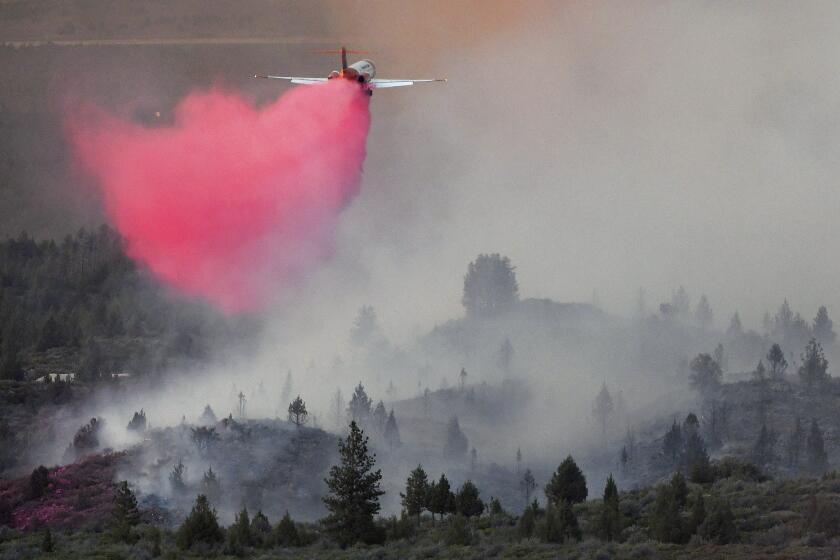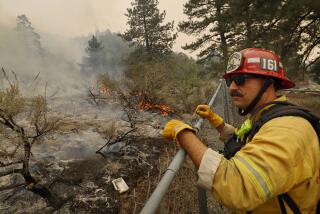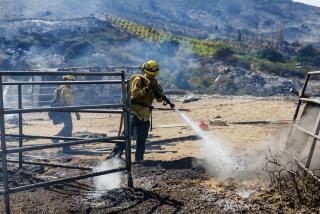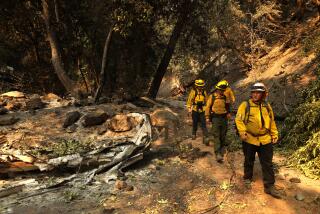Lava fire still a threat as Salt, Tennant fires destroy homes in Northern California
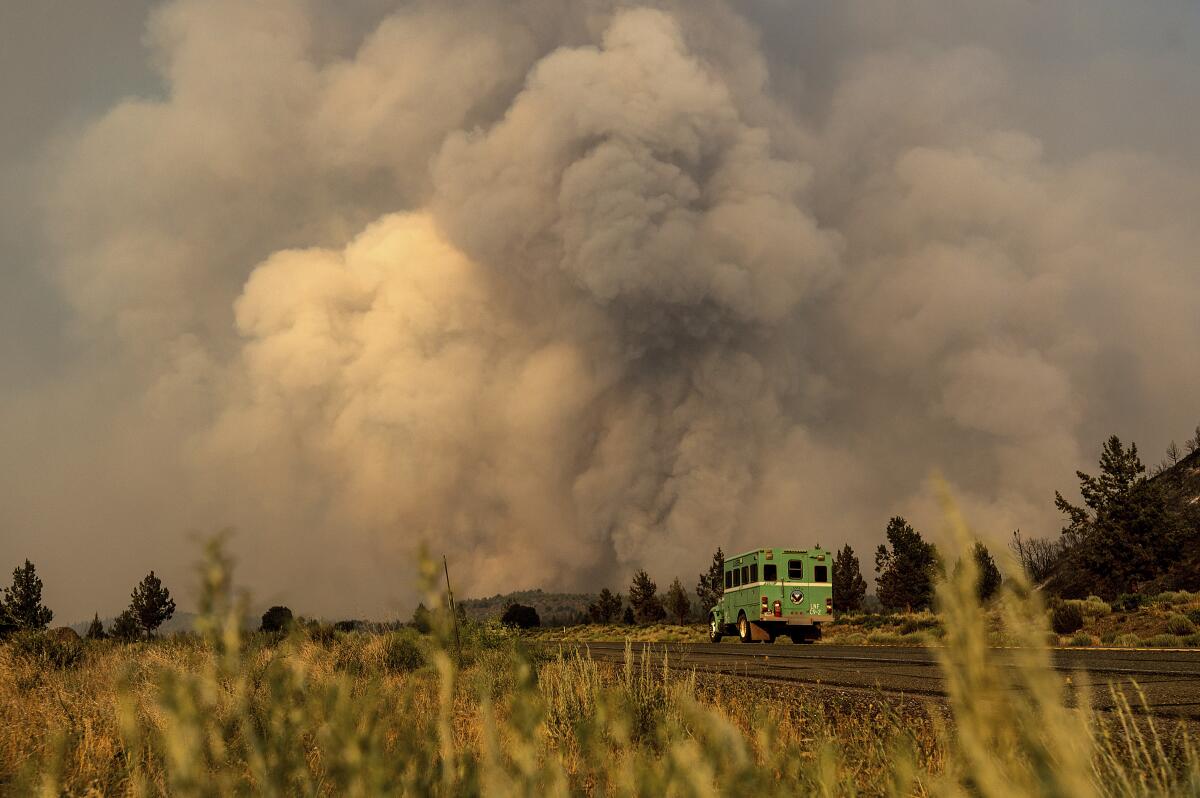
A trio of fires raging in Northern California continue to threaten hundreds of structures, ravaging several homes as scorching temperatures and dry weather complicate containment efforts.
Two forest fires — the Salt and Tennant — reportedly destroyed more than a dozen homes between them.
The Salt fire in the Lakehead area of Shasta County, north of Redding, has scorched more than 5,000 acres since igniting Wednesday and reportedly has burned through at least one neighborhood.
A reporter with the Record Searchlight in Redding saw at least a dozen homes, garages and outbuildings that were destroyed near Herman Way and Zola Drive in the Gregory Creek Acres subdivision off Gregory Creek Road.
Adrienne Freeman, a spokesperson for the Shasta-Trinity National Forest, said county assessors surveyed a neighborhood for damage, but she did not have details about what was found.
More than 280 fire personnel are working amid challenging conditions to beat back the flames. Temperatures in the Shasta Lake and northern Shasta County area ranged from the mid-90s to 100 degrees Friday, said Karl Swanberg, a forecaster with the National Weather Service.
“Generally we’re looking at dry conditions and continued warm temperatures,” he said.
Fire crews are prioritizing the north and east portions of the Salt fire, where “there is a lot of private land,” Freeman said, “and there’s also a lot of recreational value out there.” Firefighters have been able to hold the blaze east of Interstate 5.
As of Friday, the fire was 5% contained — the first progress in curtailing the blaze since it broke out just before 2 p.m. Wednesday.
Farther north, on the eastern side of the Klamath National Forest, the Tennant fire has destroyed five structures, including two homes, along the Highway 97 corridor, officials said.
A commercial building and two minor structures were consumed by the flames, which first broke out late Monday afternoon near the highway and Tennant Road.
An additional 300 homes remain under threat by the forest fire, which has ballooned to more than 9,800 acres and sits at 17% containment, said Tom Stokesberry, spokesperson with California Interagency Incident Management Team 15, which includes federal, state and municipal employees.
The structures were destroyed the same day the fire started during an “extreme unpredicted weather event,” Stokesberry said.
Weather continues to pose difficulties in fighting the Tennant fire and the other Northern California conflagrations. Wind continues to drive the flames as a crew of nearly 750 battles the Tennant fire.
“The hot condition, the extremely high fuels and the winds are what’s been driving this fire,” Stokesberry said.
Temperatures were forecast to hover for days in the upper 90s.
As the Lava fire continued to expand, the Salt fire swelled to 2,800 acres and the Tennant fire grew to more than 9,400 acres in Northern California.
Smoke from the other two fires to the south sometimes creeps up and helps suppress the Tennant’s flames, but once it dissipates, “you’ve got the radiant heat of the sun hitting it, and then you get the late afternoon wind pushing it,” Stokesberry said.
Meanwhile, the largest of the three blazes — the Lava fire — continues to threaten hundreds of structures in Siskiyou County, near the Oregon border.
By Friday evening, the lightning-sparked fire had charred just shy of 24,000 acres, with 27% containment, according to the U.S. Forest Service. The fire started Saturday morning.
The blaze is primarily spreading on the east side, with some expansion to the southeast and northeast, said Cheryl Chipman, spokesperson for California Interagency Incident Management Team 15.
Firefighters “did really good on the south, and the part they’re really trying to tie up is the east,” she said.
More than 2,300 people remain displaced by the fire, Chipman said. Crews are confident that the communities in Weed, Lake Shastina and Mount Shasta are well protected for the time being, but concerns remain.
“There are areas that are still evacuated, so there is inherent risk and threat in those areas,” Chipman said.
Throughout Friday, crews mopped up on the western and southern flanks and built direct containment lines when possible, she added.
More to Read
Sign up for Essential California
The most important California stories and recommendations in your inbox every morning.
You may occasionally receive promotional content from the Los Angeles Times.

